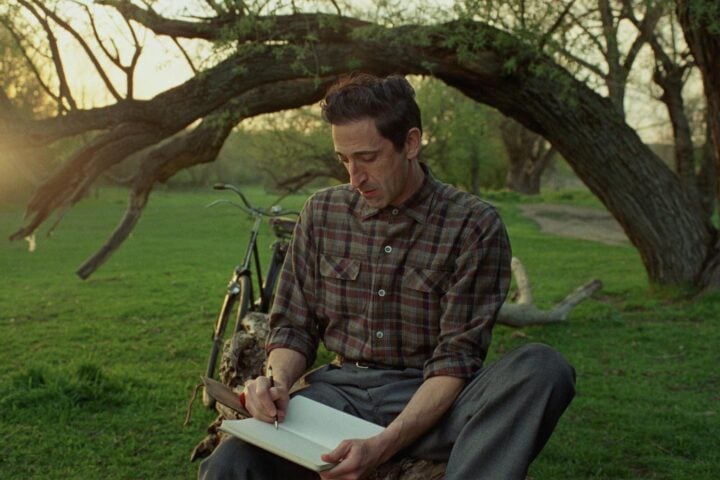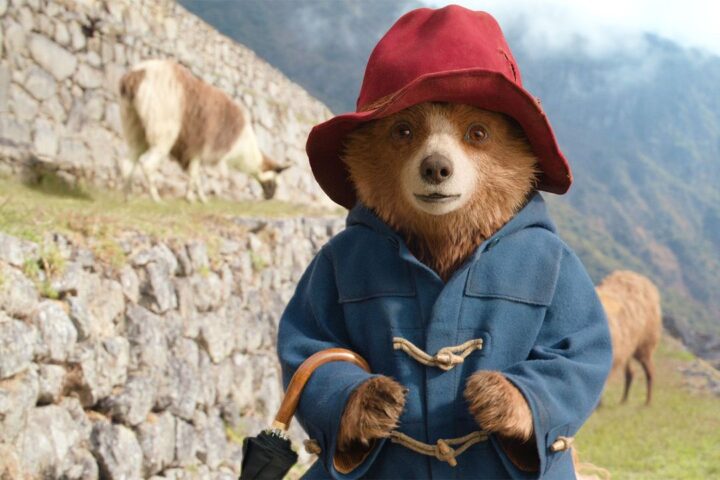Paul King’s Paddington and Paddington 2 are funny, delightfully inventive, and free of the snarky humor that dominates most kiddie fare. With Wonka, the latest rendition of the adventures of Roald Dahl’s eccentric chocolatier Willy Wonka, King offers more of the same. But in returning to the psychedelic, candy-fueled world that Dahl first introduced in 1964’s Charlie and the Chocolate Factory, Wonka also diverges in tone from both the book and the two subsequent films by Mel Stuart and Tim Burton, respectively, and does so to great effect.
Perhaps no one can top Gene Wilder’s uncanny performance as Wonka in Stuart’s 1971 film Willy Wonka & the Chocolate Factory. Timothée Chalamet wisely doesn’t try to match the way that Wilder pivots from charming and merry to menacing and enraged on a dime, instead imbuing Wonka with a spiritedness befitting a prequel set years earlier, bringing a warmth and tenderness that’s in perfect unison with the vibrant and bizarre world that King creates here.
If Wilder and Johnny Deep’s takes on Willy Wonka abide by the character’s darker impulses, from his hatred of parents to his indifference to the suffering of selfish brats, Chalamet’s Wonka is defined by his resourcefulness, ingenuity, and unwavering zeal. This Wonka is certainly a more palatable version of the character, but that isn’t to say that King has smoothed out the ominous undercurrents that flow through every other tale about the chocolatier. Indeed, the threat embodied by the Willy Wonka in Dahl’s novels, including 1972’s Charlie and the Great Glass Elevator, and the previous films is outsourced to a bevy of imaginative madcap foes.
Upon Wonka’s arrival in a city renowned for its chocolate, he encounters the pitiless, yellow-teethed Mrs. Scrubbit (Olivia Colman), who serves as an amusing foil to Wonka after she traps him in indentured servitude thanks to the help of her hefty, baritone stoolie, Bleacher (Tom Davis). Wonka is also terrorized by an Oompa-Loompa (Hugh Grant, bringing the same pouty, smug imperiousness to the role that he did to Phoenix Buchanan in Paddington 2), who steals from him in the middle of the night, demanding repayment for cocoa beans taken years earlier.
Wonka’s old nemesis and fellow chocolatier, Slugworth (Paterson Joseph), also works tirelessly to engineer his quirky colleague’s downfall with the help of fellow businessmen Prodnose (Matt Lucas) and Fickelgruber (Mathew Baynton), and the sweet-toothed Chief of Police (Keegan Michael-Key). This evil quartet’s secret pact represents a sly critique of the age-old collusion between private business and legal forces. Yet the presentation of its message—involving a chocolate cartel and an underground supply of chocolate guarded by “a corrupt cleric and 500 chocoholic monks”—is surreptitiously delivered within a candy-coated shell.
Indeed, nearly everything in Wonka is served up with an intoxicating effervescence, from Neil Hannon’s original songs to Nathan Crowley’s lavish production design to Linda Hemmings’s costumes. King again proves himself a masterful engineer of imaginary worlds, and it’s the meticulous attention to detail that makes Wonka so captivating, full as it is of little visual gags and character designs, like Prodnose’s Hitleresque hair or the business card for “Elastipants” that the trio gives to Michael-Key’s police officer so that he can conceal his future chocolate-induced weight gain, that are amusing even when they don’t call attention to themselves.
No less meticulous are the film’s actors, who move about with almost choreographed rhythms, lending Wonka a nimbleness and buoyancy of a live-action cartoon. That pervasive levity does mean that this film is the least akin to Dahl’s novels, but it’s also the most visually and emotionally harmonious, reimagining an iconic character and his off-kilter world with all the joie de vivre one associates with both youthful ambitions and the Hollywood musical.
Since 2001, we've brought you uncompromising, candid takes on the world of film, music, television, video games, theater, and more. Independently owned and operated publications like Slant have been hit hard in recent years, but we’re committed to keeping our content free and accessible—meaning no paywalls or fees.
If you like what we do, please consider subscribing to our Patreon or making a donation.





